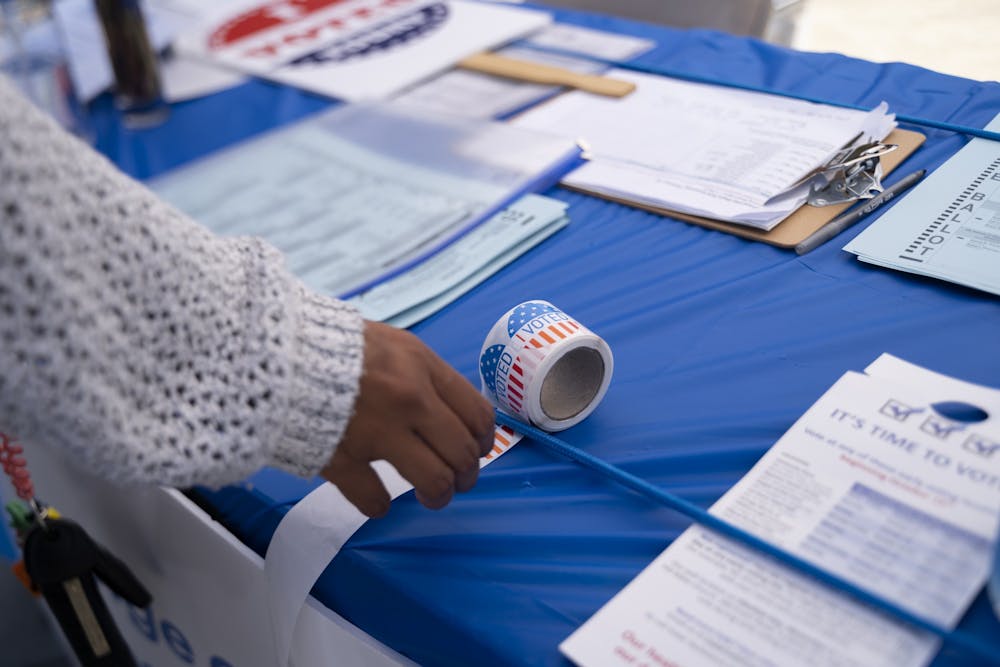The stakes of the upcoming election are high, particularly for young voters, with key issues like reproductive rights, gun safety, foreign relations and climate change on the line. It is more important now than ever for young people to vote, and they should be given every opportunity to fulfill their civic responsibility.
The challenges of voting in college are daunting, especially when you aren’t registered to vote in your college town or have a full day of classes, clubs, work and more. These challenges discourage many students from participating in voting altogether. It's up to UNC to alleviate these difficulties. One easy way: canceling classes on Election Day.
The question “why not just vote by mail?” may come to mind when considering the need for canceling classes. It’s true that college students often turn to voting by mail to avoid changing their registration or dealing with voting on campus. However, voting by mail has become increasingly difficult since North Carolina now requires a valid photo ID to be shown when voting.
To vote by mail, two witnesses or a notary public must be present when you fill out your ballot. A witness can be anyone 18 years old or older. You and your witnesses or your notary public must sign the back of the envelope. Additionally, you must include a printed copy of your ID on the back of the envelope. If any of these steps are done incorrectly, and there is not enough time to correct the mistakes, your vote will be discarded.
If students wish to avoid the effort of voting by mail and the problems presented, they are able to change their voting registration using their UNC address. However, this still doesn’t avoid all the roadblocks of voting in college.
Students registered to vote using their UNC address will be assigned to vote at the only on-campus voting location: the Sonja Haynes Stone Center for Black History and Culture. UNC currently houses over 8,500 students on campus and nearly 1,300 students in Granville Towers. This means almost 10,000 people could be planning on voting at the Stone Center, likely resulting in lengthy lines and prolonged waiting times. It can be expected that students will face conflict between wait times and class schedules when attempting to vote on campus and get to classes.
Some students may be planning to go home to vote. Students registered to vote with an off-campus address will be assigned an off-campus voting location. Both groups will require travel time, which they may not have if they have to attend classes.
Despite these shortcomings, UNC has made some steps to work toward a smoother Election Day for students. In light of a recent lawsuit over the validity of a mobile UNC One Card acting as a form of ID when voting, UNC agreed to print a physical UNC One Card at no cost for any student, faculty or staff member who needs one to vote. However, since this announcement, a North Carolina judge has refused to hear the lawsuit, allowing for the mobile ID to be used.
The difficulties of long lines and travel times will only be worsened by students, faculty and staff having to navigate around their class and work schedules. Canceling classes on election day will drastically decrease the barriers students face when voting in college and increase the ease with which the UNC community can vote, ensuring that every voice is heard. UNC owes it to students, staff and faculty to make election day a day dedicated to engagement, participation and democracy.



